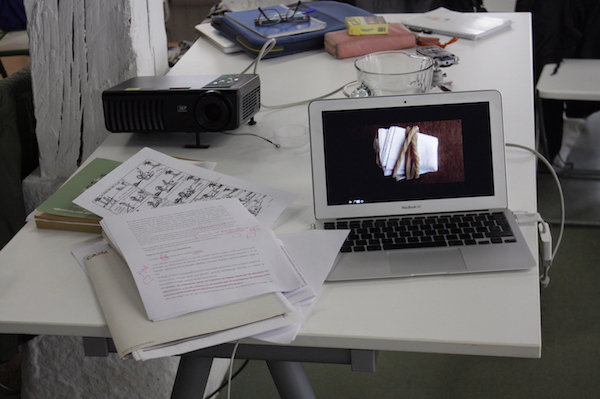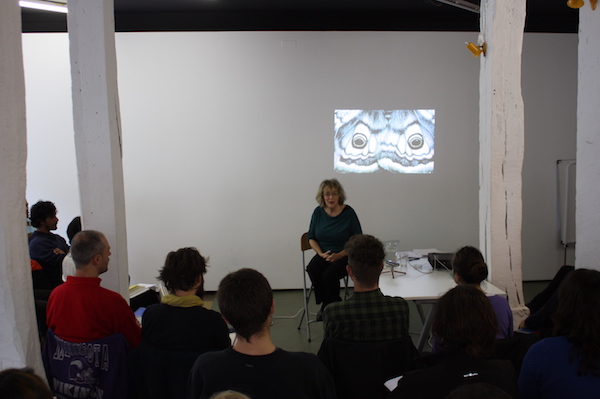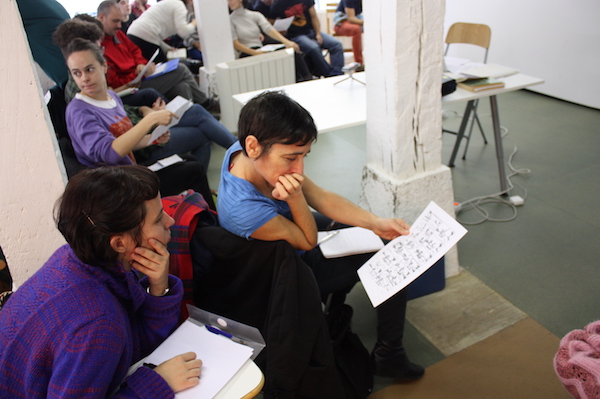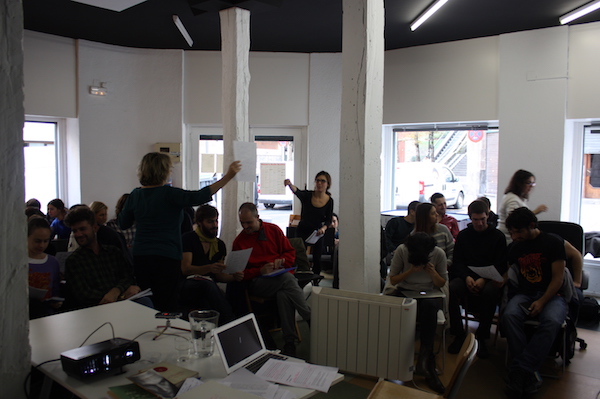Forms of formless knowledge
FROM A “UNIVERSITY WITHOUT CONDITION”: WRITING DEFERRED AND LESSER KNOWLEDGE. AURORA FERNÁNDEZ POLANCO
by
In our era of academic capitalism we are still comfortably reclining in our sofas –in our family living rooms, on the psychoanalist’s divan and in our Victorian universities-, all of which as Michel Foucault pointed out four decades ago, generate profit. I propose to rethink aspects of the university, with a focus on the humanities, the vast field where art is considered to reside in the university curriculum, particularly where research is concerned.
Jacques Derrida suggested that the humanities should have to deconstruct their own concepts for a University without condition. We’ll begin with interiority, the model of ‘contemplation’ as individual access to knowledge, bound to reflection and solitary study, going on from there to the self-reflexiveness of exemplary figures of modernity: Heidegger’s hut and Virginia Woolf’s room of one’s own; also a model based on acts of verification, on a ‘store of knowledge’ which lay the ground for a ‘scientific’ model of the humanities that we will contrast with other, more dialogical and connective models.
We will then look at writing itself. The AHRC [Arts and Humanities Research Council] prefers the term practice-led research to practice-based research. The former reflects the need for practice to be accompanied by “some form of documentation of the research process, as well as some form of textual analysis or explanation to support its position and to demonstrate critical reflection”.
In 1972, Roland Barthes was already advising young investigators to inscribe their research within desire; that is, to put their themes into writing, not in order to express them but to cause a dispersal, a spillage, in the discourse of investigation. Could we then, in a parody of the postmedia condition, speak of a post-textual condition where essay writing could embody and displace (Derrida) the traditional “black on white” as the sole “store of critical thinking”, so that the space of writing and the practices involved in artistic investigation could be reconsidered?
We could (and should) broaden the concept of writing, and move from work (oeuvre) to text, and from text to a dispositive made up of a complex, as yet undefined network of signs that generate meaning. This would be a way to escape from the traditional modern dichotomy between theory and practice, and to imagine a new topology in which writing would give way to different modes of articulating research. Moving through the campus in such a new topology of the humanities would mean following a series of lines that link up “partial statements”, lesser, situated, and “formless” forms of knowledge, with a material writing able to make its mark in the global economies of the signs we use.
To take part in the activity, which will run from 11.00 to 14.00, and be sent the selected bibliography, contact bulegoa@bulegoa.org
Aurora Fernández Polanco is a professor at the Department of Art Theory and History, Universidad Complutense, Madrid. She has worked on changes in perception in the appreciation of contemporary art, and on the reconsidering of problems in narrative by thinking through images in books, articles, talks and organising courses and seminars. Recent publications include: “Voir Basilio Martin Patino avec Georges Didi-Huberman”, T. Davila, P. Sauvanet (Eds.) Devant les images. Penser l’art et l’histoire avec Georges Didi-Huberman, París, Les presses du réel, 2011; “Mnemosyne versus Clio: la Historia desde el Arte”, Espacio, tiempo y forma, UNED, Madrid, 2012; “Ver a distancia”, Lecturas para un espectador inquieto (Ed. Yayo Aznar, Pablo Martínez, Madrid, CA2M, 2012; “Mnémosyne à l’époque de la digitalisation globale (Tavola des chocs modernes)”, Images Re-vues, 2013. Exhibitions curated include Image(s), mon amour. Rabih Mroué, CA2M, Móstoles, 2013. She also edits the magazine Re-visiones.
http://re-visiones.imaginarrar.net/



